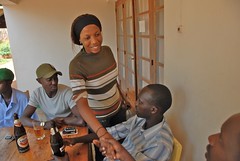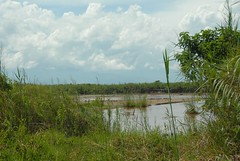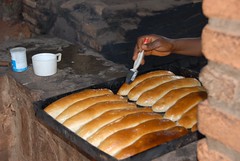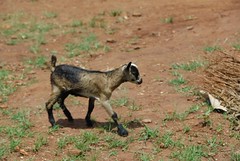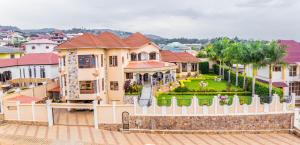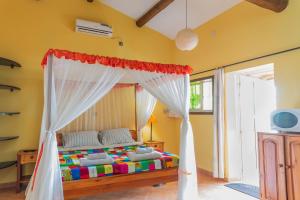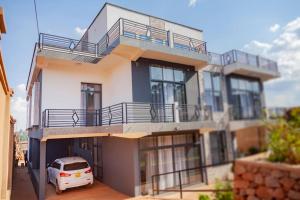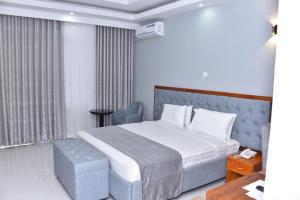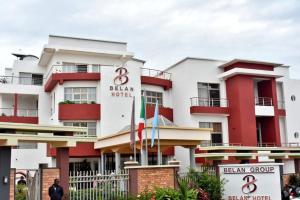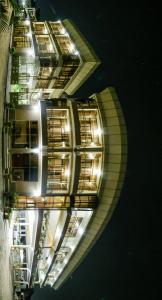 Burundi
Burundi
Burundi (English: /bəˈrʊndi/, English: /-ˈrʌn-/), officially the Republic of Burundi (Kirundi: Repuburika y’Uburundi Kinyarwanda: [u.βu.ɾǔː.ndi]; Swahili: Jamuhuri ya Burundi; French: République du Burundi French: [buʁundi, byʁyndi]), is a landlocked country in the Great Rift Valley at the junction between the African Great Lakes region and East Africa. It is bordered by Rwanda to the north, Tanzania to the east and southeast, and the Democratic Republic of the Congo to the west; Lake Tanganyika lies along its southwestern border. The capital cities are Gitega and Bujumbura, the latter being the country's largest city.
The Twa, Hutu and Tutsi peoples have lived in Burundi for at least 500 years. For more than 200 of those years, Burundi was an independent kingdom, until the beginning of the 20th century, when it became a German colony. After the First World War and Germany's defeat, the League of Nations "mandated" the territory to Belgium. After the Second World War, this transformed into a United Nations Trust Territory. Both Germans and Belgians ruled Burundi and Rwanda as a European colony known as Ruanda-Urundi. Burundi and Rwanda had never been under common rule until the time of European colonization of Africa.
Burundi gained independence in 1962 and initially had a monarchy, but a series of assassinations, coups and a general climate of regional instability culminated in the establishment of a republic and a one-party state in 1966. Bouts of ethnic cleansing and ultimately two civil wars and genocides during the 1970s and again in the 1990s resulted in hundreds of thousands of deaths, leaving the economy undeveloped and the population one of the world's poorest. The year 2015 witnessed large-scale political strife as President Pierre Nkurunziza opted to run for a third term in office, a coup attempt failed and the country's parliamentary and presidential elections were broadly criticised by members of the international community.
The sovereign state of Burundi's political system is that of a presidential representative democratic republic based upon a multi-party state. The president of Burundi is the head of state and head of government. There are currently 21 registered parties in Burundi. On 13 March 1992, Tutsi coup leader Pierre Buyoya established a constitution, which provided for a multi-party political process and reflected multi-party competition. Six years later, on 6 June 1998, the constitution was changed, broadening the National Assembly's seats and making provisions for two vice-presidents. Because of the Arusha Accord, Burundi enacted a transitional government in 2000. In October 2016, Burundi informed the UN of its intention to withdraw from the International Criminal Court.
Burundi remains primarily a rural society, with just 13.4% of the population living in urban areas in 2019. The population density of around 315 people per square kilometre (753 per sq mi) is the second highest in Sub-Saharan Africa. Roughly 85% of the population are of Hutu ethnic origin, 15% are Tutsi, and fewer than 1% are indigenous Twa. The official languages of Burundi are Kirundi, French, and English, Kirundi being recognised officially as the sole national language.
One of the smallest countries in Africa, Burundi's land is used mostly for subsistence agriculture and grazing, which has led to deforestation, soil erosion and habitat loss. , the country was almost completely deforested, with less than 6% of its land covered by trees and over half of that being commercial plantations.
Burundi is the poorest country in the world according to gross domestic product (GDP) per capita, with $292 in 2022, and a least developed country, facing widespread poverty, corruption, instability, authoritarianism, and illiteracy.
Burundi is densely populated, and many young people emigrate in search of opportunities elsewhere. The World Happiness Report 2018 ranked the country as the world's least happy with a rank of 156. Burundi is a member of the African Union, Common Market for Eastern and Southern Africa, United Nations and the Non-Aligned Movement.
Etymology
Modern Burundi is named after the King of Burundi, who ruled the region starting in the 16th century. It may ultimately derive its name from the Ha people of the region, whose place of origin was known as Buha.
History
Burundi is one of the few countries in Sub-Saharan Africa, along with its neighbour Rwanda among others (such as Botswana, Lesotho, and Eswatini), to be a direct territorial continuation of a pre-colonial era African state. The early history of Burundi, and especially the role and nature of the country's three dominant ethnic groups, the Twa, Hutu and Tutsi, is highly debated amongst academics. However, it is important to note that the nature of culture and ethnic groups is always fluid and changing. While populations might have migrated to the area at different times and as distinctly different ethnic groups, the current distinctions are considered by some to be socio-cultural constructs. Initially the different ethnic groups lived together in relative peace. The first conflicts between ethnic groups can be dated back to the 17th century, when land was becoming ever more scarce because of the continuous growth in population.
Kingdom of Burundi
The first evidence of the Burundian state dates back to the late 16th century where it emerged on the eastern foothills. Over the following centuries it expanded, annexing smaller neighbours. The Kingdom of Burundi, or Urundi, in the Great Lakes region was a polity ruled by a traditional monarch with several princes beneath him; succession struggles were common. The king, known as the mwami (translated as ruler) headed a princely aristocracy (ganwa) which owned most of the land and required a tribute, or tax, from local farmers (mainly Hutu) and herders (mainly Tutsi). The Kingdom of Burundi was characterised by a hierarchical political authority and tributary economic exchange.
In the mid-18th century, the Tutsi royalty consolidated authority over land, production, and distribution with the development of the ubugabire—a patron-client relationship in which the populace received royal protection in exchange for tribute and land tenure. By this time, the royal court was made up of the Tutsi-Banyaruguru. They had higher social status than other pastoralists such as the Tutsi-Hima. In the lower levels of this society were generally Hutu people, and at the very bottom of the pyramid were the Twa. The system had some fluidity, however. Some Hutu people belonged to the nobility and in this way also had a say in the functioning of the state.
The classification of Hutu or Tutsi was not merely based on ethnic criteria alone. Hutu farmers that managed to acquire wealth and livestock were regularly granted the higher social status of Tutsi, some even made it to become close advisors of the Ganwa. On the other hand, there are also reports of Tutsi that lost all their cattle and subsequently lost their higher status and were called Hutu. Thus, the distinction between Hutu and Tutsi was also a socio-cultural concept, instead of a purely ethnic one. There were also many reports of marriages between Hutu and Tutsi people. In general, regional ties and power struggles played a far more determining role in Burundi's politics than ethnicity.
Rule by Germany and Belgium
From 1884, the German East Africa Company was active in the African Great Lakes region. As a result of heightened tensions and border disputes between the German East Africa Company, the British Empire and the Sultanate of Zanzibar, the German Empire was called upon to put down the Abushiri revolts and protect the empire's interests in the region. The German East Africa Company transferred its rights to the German Empire in 1891, in this way establishing the German colony of German East Africa, which included Burundi (Urundi), Rwanda (Ruanda), and the mainland part of Tanzania (formerly known as Tanganyika). The German Empire stationed armed forces in Rwanda and Burundi during the late 1880s. The location of the present-day city of Gitega served as an administrative centre for the Ruanda-Urundi region.
During the First World War, the East African Campaign greatly affected the African Great Lakes region. The Belgian and British colonial forces of the allied powers launched a coordinated attack on the German colony. The German army stationed in Burundi was forced to retreat by the numerical superiority of the Belgian army and by 17 June 1916, Burundi and Rwanda were occupied. The Force Publique and the British Lake Force then started a thrust to capture Tabora, an administrative centre of central German East Africa. After the war, as outlined in the Treaty of Versailles, Germany was forced to cede "control" of the Western section of the former German East Africa to Belgium.
On 20 October 1924, Ruanda-Urundi, which consisted of modern-day Rwanda and Burundi, became a Belgian League of Nations mandate territory, with Usumbura as its capital. In practical terms it was considered part of the Belgian colonial empire. Burundi, as part of Ruanda-Urundi, continued its kingship dynasty despite the presence of European authorities.
The Belgians, however, preserved many of the kingdom's institutions; the Burundian monarchy succeeded in surviving into the post-colonial period. Following the Second World War, Ruanda-Urundi was classified as a United Nations Trust Territory under Belgian administrative authority. During the 1940s, a series of policies caused divisions throughout the country. On 4 October 1943, powers were split in the legislative division of Burundi's government between chiefdoms and lower chiefdoms. Chiefdoms were in charge of land, and lower sub-chiefdoms were established. Native authorities also had powers. In 1948, Belgium allowed the region to form political parties. These factions contributed to Burundi gaining its independence from Belgium, on 1 July 1962.
Independence
On 2…






